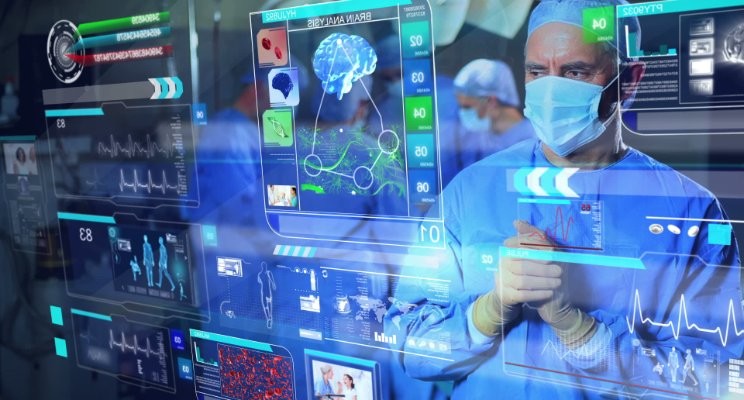In today’s world, the synergy between technology and medicine has become inseparable. From diagnosis to treatment, technology has revolutionized medical procedures, making healthcare more precise, efficient, and accessible than ever before. This symbiotic relationship between these two fields has led to groundbreaking innovations, reshaping the landscape of healthcare and paving the way for a healthier future.
Precision Diagnosis
One of the most significant advancements in medical procedures is the development of precise diagnostic tools powered by technology. Imaging techniques such as MRI, CT scans, and ultrasound have revolutionized the way diseases are detected and monitored. These imaging modalities provide detailed insights into the body’s internal structures, allowing healthcare professionals to identify abnormalities with unprecedented accuracy.
Moreover, the integration of artificial intelligence (AI) and machine learning algorithms has further enhanced diagnostic capabilities. These algorithms can analyze vast amounts of medical data, including images, genetic information, and patient records, to assist clinicians in making more accurate diagnoses. AI-driven diagnostic tools not only expedite the diagnostic process but also help in predicting disease progression and personalizing treatment plans based on individual patient characteristics.
Minimally Invasive Surgery
Technological advancements have also transformed surgical procedures, making them less invasive and more precise. Minimally invasive techniques, such as laparoscopy and robotic-assisted surgery, offer several advantages over traditional open surgery, including smaller incisions, reduced blood loss, faster recovery times, and lower risk of complications.
Robotic-assisted surgery, in particular, has emerged as a game-changer in the field of surgery. Surgeons can now perform complex procedures with enhanced precision and dexterity, thanks to robotic systems controlled via computer interfaces. These systems provide magnified 3D views of the surgical site and allow for precise movements, improving surgical outcomes and patient satisfaction.
Telemedicine and Remote Monitoring
Another area where technology is revolutionizing medical procedures is in the realm of telemedicine and remote monitoring. Telemedicine enables patients to consult with healthcare providers remotely, eliminating the need for in-person visits, particularly useful for individuals in rural or underserved areas.
Remote monitoring devices, such as wearable sensors and mobile health apps, allow patients to track their vital signs, medication adherence, and overall health status from the comfort of their homes. These tools provide real-time data to healthcare providers, enabling early detection of health issues and timely interventions, thereby improving patient outcomes and reducing healthcare costs.
Personalized Medicine
Advancements in technology have also paved the way for personalized medicine, an approach that takes into account individual variability in genes, environment, and lifestyle for tailored healthcare solutions. Through genomic sequencing and molecular diagnostics, healthcare providers can identify genetic variations and biomarkers associated with disease risk, response to treatment, and prognosis.
With this knowledge, personalized treatment plans can be developed to target specific molecular pathways, maximizing therapeutic efficacy while minimizing adverse effects. Additionally, wearable devices and mobile apps can collect data on patients’ lifestyle habits and environmental exposures, further enhancing personalized healthcare interventions.
Ethical Considerations and Future Implications
While the integration of technology into medical procedures offers immense potential benefits, it also raises ethical considerations and challenges. Issues such as data privacy, algorithm bias, and equitable access to healthcare must be carefully addressed to ensure that technological advancements are deployed responsibly and equitably.
Looking ahead, the future of medicine holds even more promise as emerging technologies such as nanotechnology, gene editing, and regenerative medicine continue to advance. By fostering collaboration between technologists, healthcare providers, policymakers, and ethicists, we can harness the power of technology to revolutionize medical procedures and ultimately improve the quality of life for people around the globe.
In conclusion, the symbiotic relationship between technology and medicine is reshaping the way healthcare is delivered, from precision diagnosis to personalized treatment. By leveraging technological innovations, we can overcome existing healthcare challenges and pave the way for a healthier, more equitable future. As we continue to push the boundaries of what is possible, the intersection of technology and medicine will undoubtedly play a pivotal role in shaping the future of healthcare.


